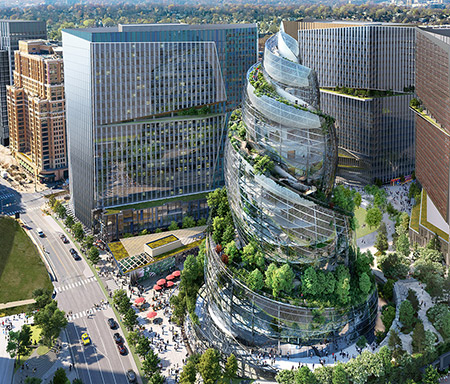
Asia’s data centre
Hong Kong is becoming a major focus for data centre operators; strong demand and undersupply mean the sector offers rich pickings for real estate investors.
The growing digital economy and increasing adoption of cloud services, big data, and the internet of things has led to an increase in the demand for data centres across Asia Pacific. Research company Arizton Advisory & Intelligence predicts the region’s data centre market will be worth $80 billion by 2026, a compound annual growth rate of 6%. This growth will require the construction of more data centres.
Real estate investors have already allocated substantial capital to data centres in Asia Pacific. Savills has tracked more than $7 billion of investment in data centre strategies from global investors such as GIC, Abu Dhabi Investment Authority and Ontario Teacher’s Pension Plan, with managers such as Warburg Pincus, Gaw Capital and Blackstone Group.
Hong Kong has many advantages as a location for data centres, says Simon Smith, head of Asia Pacific research and consultancy at Savills. “Hong Kong provides an excellent springboard for companies looking to enter the Chinese market and a gateway for Chinese companies seeking to expand internationally.
“The city has a robust telecommunications infrastructure, with reliable power supply and connections to regional and trans-Pacific submarine cables, as well as high mobile and broadband penetration. Hong Kong is a major centre for Chinese and international banking and finance companies, has a skilled workforce and a supportive, business-friendly government. Data centres need to be secure from natural disasters, such as earthquakes and tsunami, and Hong Kong provides a safe harbour.”
Savills research shows more than 9 million sq ft of space occupied by data centre operators in Hong Kong, with the top 10 occupiers accounting for nearly three-quarters of the total. Government-controlled Hong Kong Science and Technology Park, which owns more than 40% of the city’s data centre space. Real estate players including Goodman Group and Singapore’s Mapletree are also active in the market.
This year, Savills research predicts that Hong Kong’s data centre shortfall will amount to 700,000 sq ft this year and that, while this shortfall will shrink next year, the market will still be undersupplied by 2023. As a consequence, operators are seeking to use existing industrial buildings, while data centre developers are competing fiercely to acquire sites.
Smith says: “Government policy supports industrial owners converting parts of their buildings to data centre use and operators are prepared to pay higher rents as well as covering the cost of conversion. However, operators tend to take long leases with stepped rental increases, which may limit the rental upside. Furthermore, the cost of restoring floors for other industrial uses will be high.”
Last year, China Mobile paid HK$5.6 billion for a site in Sha Tin, New Territories. In order to beat rivals including Sun Hung Kai and Mapletree, China Mobile’s bid was 56% higher than the second-placed bidder. “We expect to see more keen prices paid for data centre sites,” says Smith.
Further reading:
Savills Hong Kong



